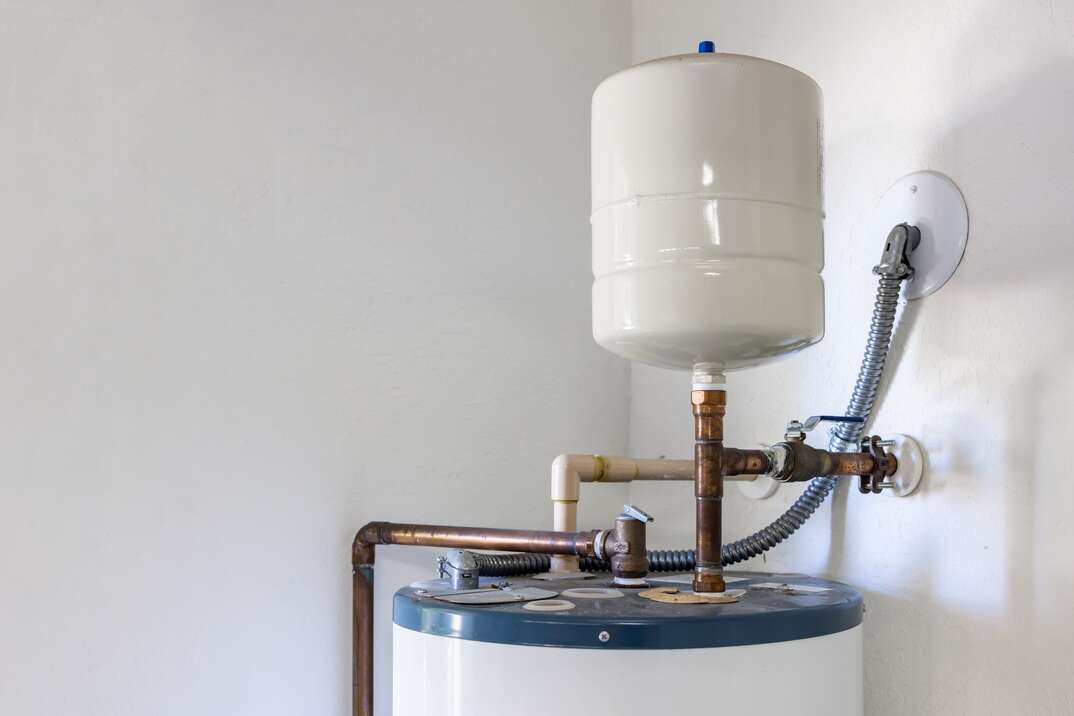- AppliancesElectriciansHVACLandscapingLocksmithPest ControlPlumbingRenovationRoofingT V RepairAll Home Improvement
- Car AccidentClass ActionCorporate LawCriminal DefenseDivorce LawEmployment LawFamily LawFinancial LawLegal AidMedical Injury LawyersMedical MalpracticeReal Estate LawWater Fire RestorationAll Legal
- InvestmentRetirementAll Finance
- Animal InsuranceAutoGeneral InsuranceHealth PolicyHome RentersAll Insurance
- DentalHealth SpecialistsAll Medical
- Animal CareVeterinaryAll Pets
- Auto GlassTowingAll Automotive
Heed These Hot Tips for Boiler Safety...

Boilers are a more efficient alternative to home furnaces, but knowing how to use your boiler safely is essential.
Read More Heating and Cooling Articles
Skimping on boiler maintenance could increase the risk of a house fire or carbon monoxide leak.
Installing safety equipment and having your boiler regularly inspected and maintained can help you keep your boiler running safely. Consider adding the following boiler safety tips to your home maintenance routine:
1. Install Carbon Monoxide Detectors
Faulty boilers can leak a colorless, odorless gas called carbon monoxide. Inhaling carbon monoxide can lead to poisoning or even death, so installing carbon monoxide detectors can help alert you to the hazard and keep your family safe. Install these essential safety devices in your boiler room and on every floor of your house.
It's also worth learning the signs of carbon monoxide poisoning, so you can identify symptoms in yourself and your family members and seek emergency assistance. Breathing in carbon monoxide can cause various physical effects, such as headaches, dizziness, vomiting and blurred vision.
If your carbon monoxide detector sounds, you should get everyone in the house outside as soon as possible and call 911. Don't reenter your home until the emergency services tell you it's safe to do so, even if the alarm stops sounding.
2. Install Smoke Detectors
Boiler problems can sometimes create a fire hazard, so installing smoke detectors on each floor and testing them regularly is essential. Replace dead batteries as soon as you notice them, and ensure your family knows what to do if the smoke alarm sounds. You can purchase dual-purpose smoke alarms with integrated carbon monoxide detectors online and from DIY stores.
3. Keep Your Boiler Room Safe
Packing boxes, clothes and other flammable items around your boiler can increase the risk of a house fire, so it's wise to keep your boiler room or closet clutter-free. Keeping the area around your boiler tidy can also make the unit more accessible during an emergency.
Another factor to consider is your boiler's proximity to other heating equipment. You should always install your boiler at least 3 feet away from heaters and other heat sources and follow local building regulations. Your installer can advise you on the safest location for your boiler.
Finally, ensure your boiler room or closet is secure. Allowing children or pets access to your boiler can be dangerous, especially if you have young kids who may not understand the dangers of tampering with the unit.
More Related Articles:
- Hiring an HVAC Tech? Here are 5 Top Tips
- What's in My HVAC Technician's Van?
- HVAC Out? 5 Common Causes and Quick Fixes for Each
- How Much Does an HVAC Filter Cost?
- HVAC Upkeep Costs: Everything You Need to Know
4. Schedule Regular Services and Maintenance
Scheduling a boiler service is easy to forget, but it can make your home safer and prolong your unit's lifespan. Generally, you should have a qualified technician service your boiler and perform essential maintenance tasks at least once per year.
During the service, your technician can detect and repair potentially dangerous faults, including common causes of carbon monoxide leaks. Catching issues early can also help you avoid more costly repairs in the future and keep your boiler running as efficiently as possible.
5. Choose a Qualified Installer
Hiring a qualified HVAC professional to install your boiler is more expensive than a handyman. However, installing a boiler incorrectly can be dangerous, so it's worth the extra money for a safe installation. While searching for a suitable contractor, be sure to check whether each technician follows local building codes for boiler installation. It's also worth asking whether your contractor has experience installing boilers from the same manufacturer, as different brands often have different installation guidelines.
6. Monitor the Boiler Pressure
All boilers have a pressure gauge that lets homeowners keep an eye on the pressure inside the unit. Low boiler pressure can be a sign of a leak and affect the hot water supply to your radiators, while high pressure increases the risk of faults developing. Your manual should state the safe pressure range for your make and model, and many gauges mark the safe range to make it easier to check the pressure at a glance.
As a rule, it's best to check your boiler pressure whenever you turn your boiler on and at least once per month during operation. If the pressure is too low or high, you can often adjust it yourself, following the instructions in your owner's manual. If you're unsure, an HVAC professional can adjust the boiler pressure for you.
Elocal Editorial Content is for educational and entertainment purposes only. Editorial Content should not be used as a substitute for advice from a licensed professional in your state reviewing your issue. Systems, equipment, issues and circumstances vary. Follow the manufacturer's safety precautions. The opinions, beliefs and viewpoints expressed by the eLocal Editorial Team and other third-party content providers do not necessarily reflect the opinions, beliefs and viewpoints of eLocal or its affiliate companies. Use of the Blog is subject to the
Website Terms and Conditions.The eLocal Editorial Team operates independently of eLocal USA's marketing and sales decisions.

